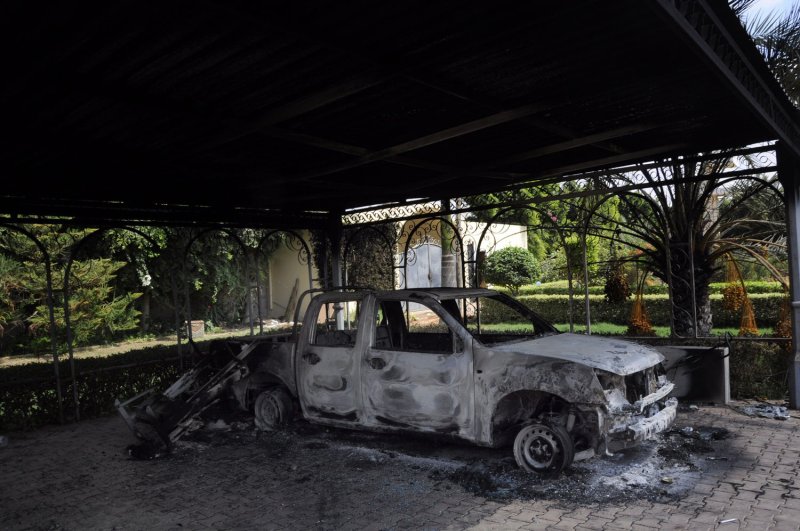WASHINGTON, Oct. 30 (UPI) -- The State Department knew of extremist activity in Libya before the attack on the U.S. Consulate in Benghazi but there was no specific warning, officials say.
The attack, which killed the U.S. Ambassador Chris Stevens and three other U.S. citizens, has become an issue in the presidential campaign. Republican challenger Mitt Romney has accused the State Department and President Obama of ignoring requests for tighter security and warnings about the situation.















